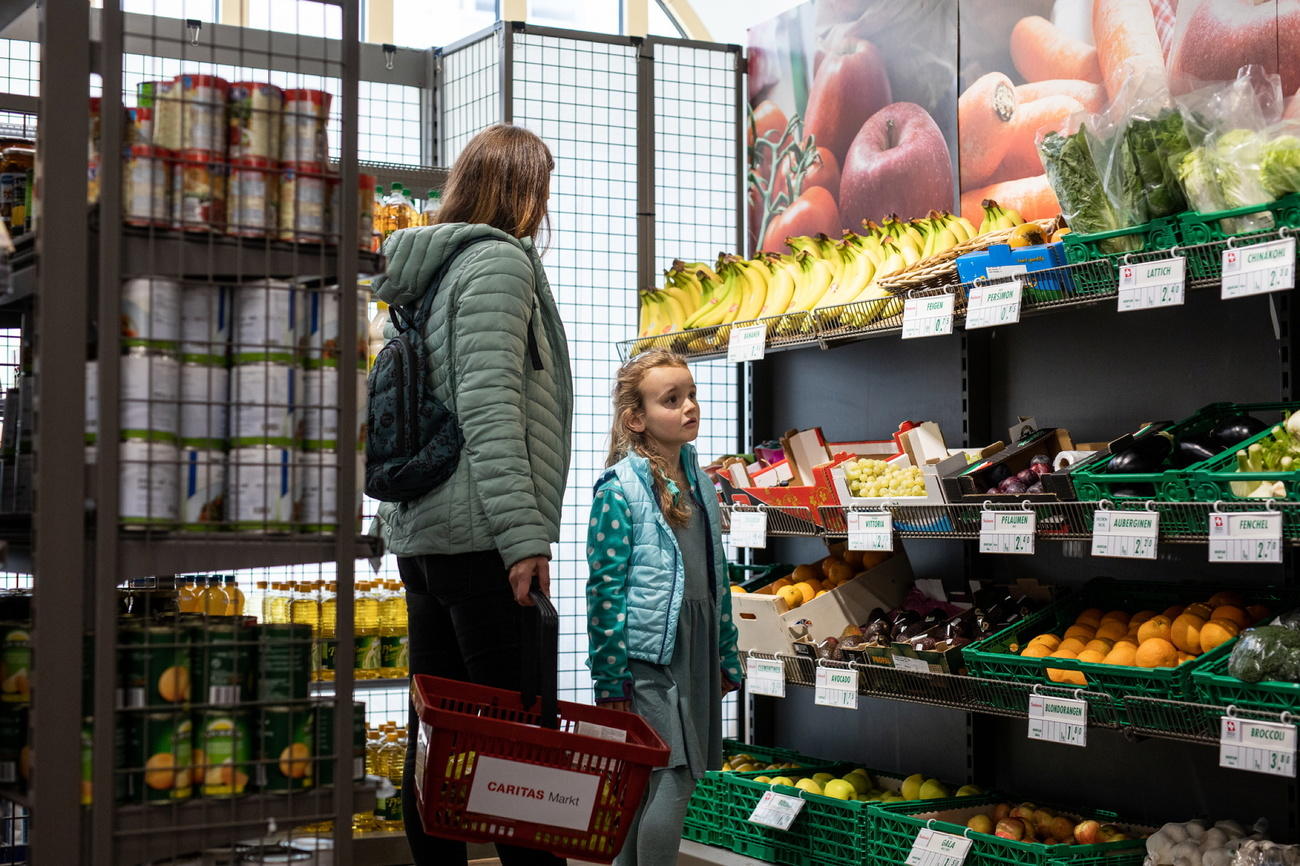
Swiss consumer habits changed by coronavirus

Coronavirus lockdown has changed Swiss consumer habits as well as reduced the use of cash and cash machines, according to a survey.
The crisis has shifted people’s priorities, according to the NZZ am Sonntag, whose source is a survey by the PostFinance bank. For example, since tough measures were introduced in mid-March people have spent 53% less on hygiene and cosmetics than a year ago. Why put on make-up if you never leave the house, asks the paper.
Spending on clothes has fallen by more than half and spending on shoes by more than 80%. Basic services have become more important, with Swiss consumers spending significantly more (+18.6%) on food.
In addition, food is being delivered more frequently. Because pubs and restaurants are closed, spending on catering fell. While PostFinance customers in 2019 were still treating themselves to restaurant visits worth CHF67 million ($69 million), they spent around CHF13 million on them this spring. This amount can be explained by snack bars that are still open, the paper says.
Because hardly any leisure activities are allowed, you have to kill time at home in a different way, it continues. Spending on communication and media has skyrocketed. But the Swiss are apparently not thinking only of themselves. They donated around a fifth more during the crisis.
The PostFinance study was compiled from its customers’ online banking data, which were anonymised and legally verified, explains the NZZ am Sonntag. It covered both what was purchased with the PostFinance card in shops and online. PostFinance has around 2.7 million customers, almost 1.8 million of whom use e-banking.
Many of us will fall back into our old consumer habits when things return to normal, the paper comments, but the coronavirus will leave its mark.

More
National Solidarity Day raises over CHF10 million for corona impacted

In compliance with the JTI standards
More: SWI swissinfo.ch certified by the Journalism Trust Initiative





























You can find an overview of ongoing debates with our journalists here . Please join us!
If you want to start a conversation about a topic raised in this article or want to report factual errors, email us at english@swissinfo.ch.